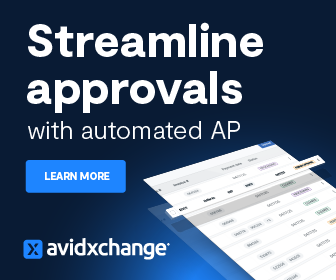As we all close out our calendar year, we would today like to take a second to look back at some of the posts that our readers found most insightful in 2021.
The Growing Shortage of Accountants and CPAs
The accounting, CPA, and corporate finance industry is facing an accountant shortage. While the job market has been growing steadily since the recession of the 2000s, many accounting departments and CPA firms have struggled to find qualified talent to fill their ranks.
What is the reason for this accountant shortage? What can be done to remedy the situation? In this post, we’ll address these two questions, while also offering practical strategies for retaining qualified workers.
Return to Work: The Vaccine Question
Companies might finally be eyeing their return to work. But on the road back, leaders need to ask questions to ensure a safe, easy, and understandable plan of action on the way back.
But you’re undoubtedly going to run into a touchy situation on the road back to office work—the vaccine question. Can you require employees get vaccinated to work? Will you run into legal troubles only allowing vaccinated employees to return to the office? Will allowing unvaccinated employees into the office pose a threat?
What Controllers Need to Know About Forensic Accounting
The word “forensic” immediately evokes the imagery of mystery novels and police procedural dramas. But forensic accounting is an important, specialized set of techniques with a variety of applications in the financial world. Many business schools even offer specialized degrees in forensic accounting.
If you serve as a financial controller, it’s important to be familiar with the practices and applications of forensic accounting. This post provides an overview of these practices and illustrates the ongoing need for forensic accountants in today’s financial market.
6 Considerations for Returning to Work
We recently had experts join us for an informative discussion on how company culture will shape re-opening of offices, how office space will be re-defined, as well as the future of work and the role the office will play.
The webinar was titled Return to Office: Planning and Perspectives and featured Chris Siegfried, CFO, Armanino (Top 20 Accounting/CPA/Consulting firm), Ted Weitzel, CFO/Controller and Operations guru, Jenn McCabe, Partner, Business Outsourcing, Armanino, and Max Chopovsky, Managing Principal of MCCS Realty, and Founder of the Future of Work podcast.
If you missed it, we have covered some of the top highlights in this post.
The Current Expected Credit Losses (CECL) Model
The economic crisis of 2007-2008 was caused by negligence in financial institutions. In response to the crisis, the federal government with boards of professional accountants created standards for reporting financial activities. One of the widely used standards was the US Generally Accepted Accounting Principles (GAAP). However, the GAAP had shortcomings that the Current Expected Credit Losses (CECL) model is designed to make up for.
The CECL model of reporting financial information encourages entities to recognize as allowance estimates of expected credit losses over the lifetime of each credit/loan. This is different from the GAAP and other previous models in the sense that they allow entities to recognize only incurred losses as allowance, therefore, poorly positioning them for future preventable downturns.
Accounting and CPA Compensation Trends
The value of any job depends on a number of factors, but salary is often one of the primary considerations. In an age where the demand for accountants is greater than the supply, it’s important for companies to offer competitive salaries to hire and retain qualified workers.
In this post, we’ll explore some of today’s accounting and CPA compensation trends. We’ll look at the average salaries for accountants and CPAs, while also examining the overall trajectory for those who are working in the field.
Making Sense of Consumer Use Tax
When you think complexities in taxes, which areas come to mind? Corporate taxes—ranging from AMT to payroll—are probably atop the list. For ecommerce companies, the answer is sales tax in the wake of Wayfair. But how about use tax? Often overlooked, this usually goes on the back burner for companies, exposing compliance professionals to unforeseen risk.
Luckily, a recent guide from Controllers Council sponsor Avalara looked to help finance professionals make sense of use tax compliance. Titled Consumer Use Tax: A Bane for Businesses, the guide explores the nuances and challenges of calculating and complying with use tax regulations.
Eight Tips to Reduce Fraud in Financial Reporting
As the pandemic and lockdowns continue, company leaders are juggling a variety of plates. Limited staff numbers working from home, manual and paper-based processes, and a lack of oversight create challenges in maintaining visibility. Unfortunately, this creates a variety of opportunities for nefarious actors both internal and external to defraud the organization.
From discussing root causes, looking at the current landscape, and observing SEC data, the entire report provides a variety of insights and tips for leaders to eradicate fraud—and a recent Journal of Accountancy article offered eight tips and things to look for.
Accounting Standards Updates (ASU) for 2021
There are various accounting standards employed in the United States. These standards are upheld and enforced by various agencies and government parastatals. Keeping all of the information relating to these agencies in line can be daunting in most cases. The knowledge of these standards, their operations, and the agencies in charge of implementing them impact the success of any business.
This article discusses the Accounting Standard Updates for 2021. The idea is to provide information that will help businesses stay compliant with these standards in the 2021 fiscal year and stay afloat in the coming years.
Controller to CFO: Ten Roles for Tomorrow’s Finance Chief
For aspiring finance executives, you’ve probably come to know a thing or two about the Four Faces—Strategist, Catalyst, Steward, and Operator. Still painting a healthy picture for those looking to climb the ladder, the last few years has seen these roles grow and branch out as finance has become more tightly intertwined with the rest of the organization.
Strategists need to see potential outcomes. Stewards need to take control of other areas. Catalysts need to be more agile, and Operators need to empower others to drive efficiency. But how have these roles diversified and what should you do to adapt?
Happy New Year from the Controllers Council
Expect big things in 2022. As the fastest growing network of corporate finance professionals, we have a lot of exciting things planned in the coming year and hope to see you along for the ride. Be sure to subscribe for all the latest and take advantage of our end of year discount before the year ends. Learn more about joining here.




